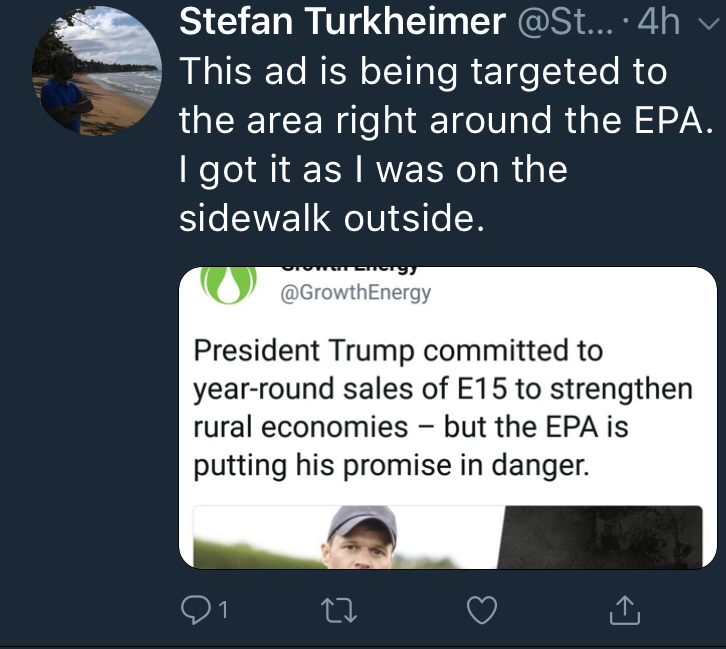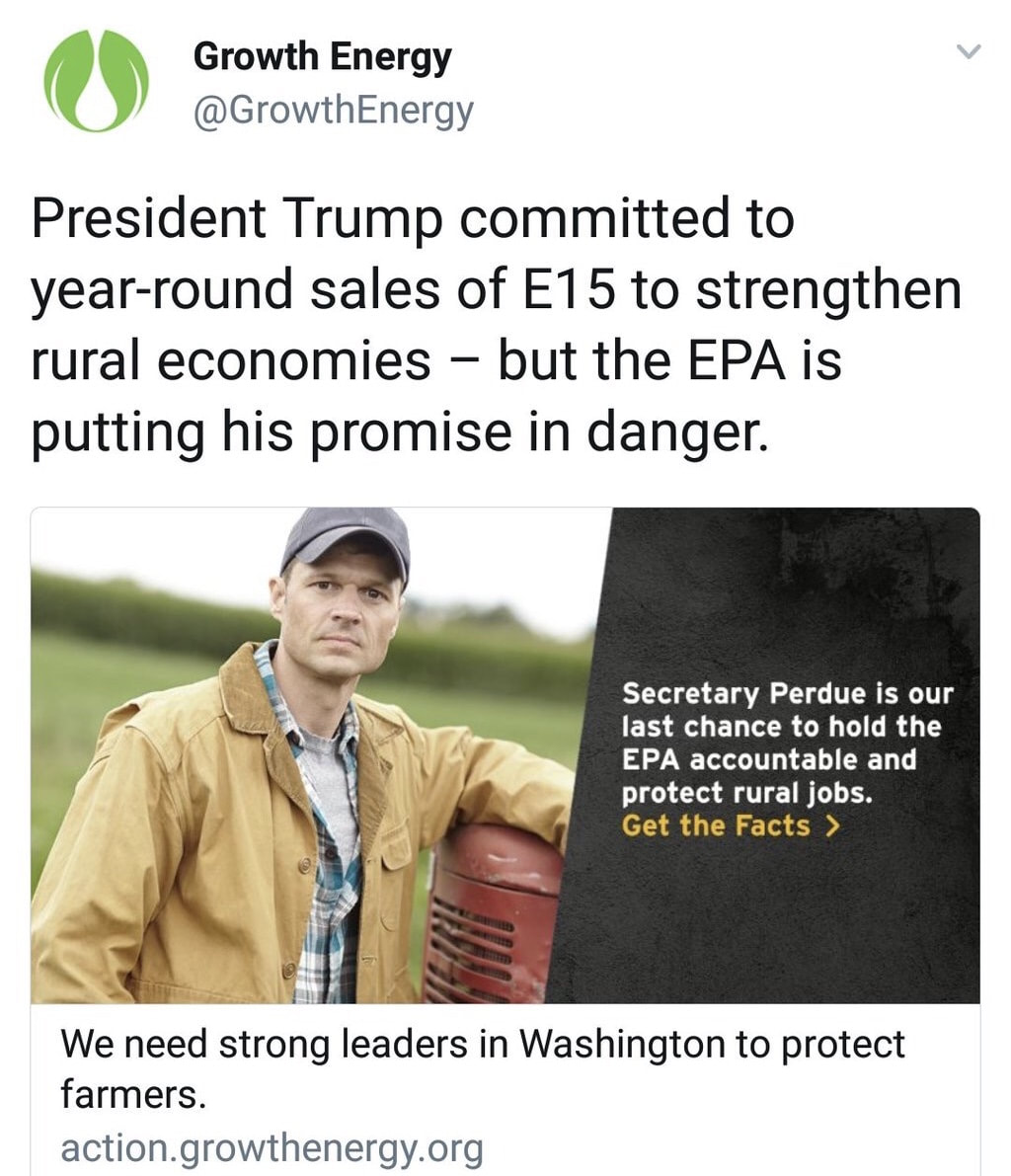|
In the interest of full disclosure we own a flex fuel vehicle. If there is a convenient opportunity, I’ll buy the corn infused mixture atvthe strangely lower price. But I never go out of my way to do so. It’s more of an occasional novelty than it is a realistic option for regular use. Then I came across a tweet by Stefan Turkheimer. He’s on Washington and was commenting on a promoted tweet that was apparently being targeted to people around the EPA building there. This looks good on the surface. Protecting farmers, strengthening rural economies, swift action by the man who has inspired so many in “flyover country.” But is that really what is happening? I want it to be what’s happening but I tend to be a skeptical about politics, especially when it promises to benefit rural America. This is no different. For starters, the ethanol in that fuel isn’t made from pecans. Or onions. Or peanuts. Or hogs. Or cattle. In fact, it’s competing for market with food for hogs and cattle. Basically it does protect some large producers of corn or grain. It’s also a good deal for the energy companies who are making the fuel. The family owned farms and the small towns aren’t any better off than they were. Second, this ad is talking E15. That’s a mixture that’s 15% ethanol and 85% gasoline. It’s terrible fir small engines like lawnmowers and boats. It’s also not great for your average gas burning automobiles. A gasoline engine just isn’t made to run on that fuel mixture. Sure, our flex fuel vehicle can handle it just fine but our other cars can’t. What will really help stimulate rural economies? 1) Consumers committed to products and services really provided in those economies. 2) Removing old and preventing new trade barriers that hinder farmers and small businesses from finding customers both locally and abroad. 3) Cutting regulations that large corporate banks can afford to survive but that place undue burden on locally owned banks and credit unions. 4) Policies that allow smaller farms to find an affordable workforce for labor intensive produce. 5) People in big cities discarding the stereotypes of rural areas as worthless, underdeveloped spaces populated by ignorant people and in turn supporting policies that maintain the resources rural economies need in order to thrive. 6) Tax policies that don’t place undue burden on small farms or prevent one generation of landowners from keeping those farms operating in future generations That’s a start anyway. Rest assured that energy companies and factory farms teaming up to turn food for people and livestock into gasoline is not going to provide a stronger economy for small towns and family farms in The South. Only conscious consumers, an affordable workforce, limted government, and a respect for private property rights can do that.
0 Comments
Leave a Reply. |
Sam B.Historian, self-proclaimed gentleman, agrarian-at-heart, & curator extraordinaire Social MediaCategories
All
Archives
November 2022
|






 RSS Feed
RSS Feed
